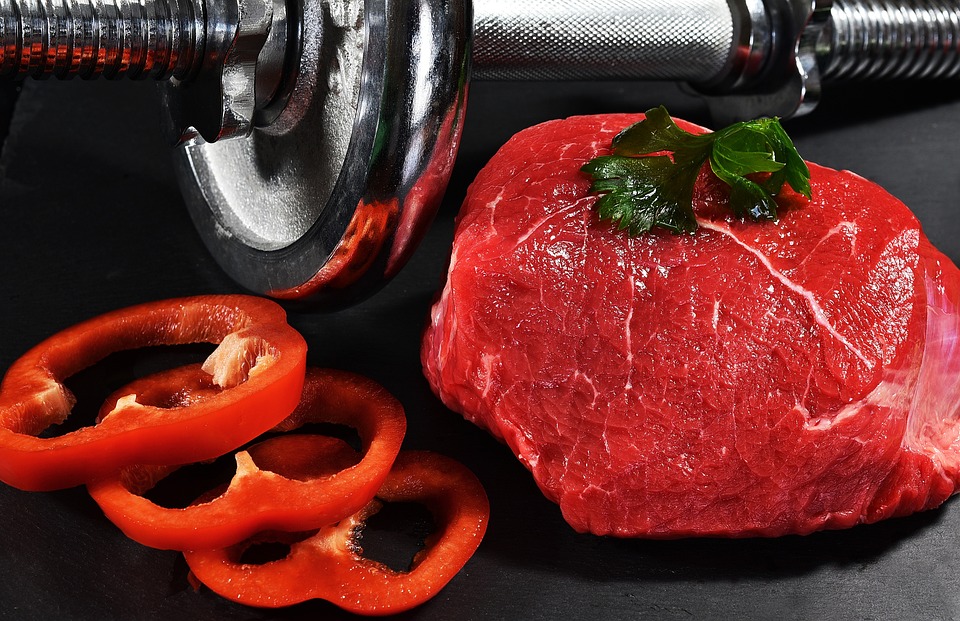Did you know that over 40% of the adult population in the United States is classified as obese? This alarming statistic has prompted many individuals to seek out reliable information on weight loss in order to improve their overall health and well-being.
Uncovering the Truth: 10 Surprising Weight Loss Facts You Need to Know is a comprehensive guide that delves into lesser-known facts and strategies for successful weight loss. With so much misinformation circulating in the media, this resource aims to provide readers with evidence-based information to help them achieve their health goals.
One surprising fact revealed in this guide is that fad diets and extreme exercise regimens are often ineffective in the long term. Instead, focusing on sustainable lifestyle changes, such as incorporating more whole foods and regular physical activity, is key to achieving lasting weight loss success.
As individuals continue to struggle with their weight and overall health, the need for accurate and practical information on weight loss has never been greater. Uncovering the Truth: 10 Surprising Weight Loss Facts You Need to Know serves as a valuable resource for those looking to navigate the complex world of weight loss with confidence and clarity.
What are the 10 Surprising Weight Loss Facts You Need to Know?
When it comes to losing weight, there are a lot of myths and misconceptions that can make it difficult to achieve your goals. That’s why it’s important to uncover the truth about weight loss and discover the facts that can help you succeed. Here are 10 surprising weight loss facts you need to know:
1. Healthy fats can help you lose weight
Contrary to popular belief, not all fats are bad for you. In fact, incorporating healthy fats like avocados, nuts, and olive oil into your diet can actually help you lose weight.
2. Sleep is crucial for weight loss
Getting enough quality sleep is key to weight loss success. Lack of sleep can disrupt your hormones and lead to weight gain, so make sure to prioritize your sleep hygiene.
3. Drinking water can boost your metabolism
Staying hydrated is essential for overall health, but it can also help you lose weight. Drinking water can boost your metabolism and help you feel full, leading to fewer calories consumed.
4. Protein is important for weight loss
Protein is essential for building and repairing tissues in the body, but it’s also important for weight loss. Protein can help you feel full and satisfied, leading to fewer cravings and overeating.
5. High-intensity interval training (HIIT) is effective
When it comes to exercise, high-intensity interval training (HIIT) has been shown to be more effective for weight loss than steady-state cardio. HIIT workouts can help you burn more calories in less time.
6. Stress can hinder weight loss
Chronic stress can lead to weight gain and make it difficult to lose weight. Finding healthy ways to manage stress, such as meditation or yoga, is important for weight loss success.
7. Weight loss is not just about calories in, calories out
While calorie intake is important for weight loss, it’s not the only factor to consider. Nutrition, exercise, sleep, and stress all play a role in your weight loss journey.
8. Your gut health affects your weight
The health of your gut microbiome can impact your weight. Eating a diet rich in fiber and fermented foods can help promote a healthy gut and support weight loss.
9. Consistency is key
Consistency is key when it comes to weight loss. Small, sustainable changes to your diet and exercise routine over time can lead to long-term success.
10. Mindful eating can help you lose weight
Practicing mindful eating, such as paying attention to your hunger and fullness cues, can help you make healthier food choices and prevent overeating.
By understanding these 10 surprising weight loss facts, you can make informed choices to support your weight loss journey and achieve your goals.
Did you know that 67% of Americans are actively trying to lose weight?
1. Can eating fats help with weight loss?
Yes, eating healthy fats like avocados, nuts, and olive oil can actually aid in weight loss. These fats can help you feel full and satisfied, leading to less overall consumption of calories.
2. Is it true that skipping meals can help me lose weight faster?
Skipping meals can actually hinder your weight loss goals. When you skip meals, it can lead to overeating later on and slower metabolism. It’s important to fuel your body regularly with nutritious meals and snacks.
3. Does drinking water really help with weight loss?
Drinking water can aid in weight loss by keeping you hydrated and helping you feel full. Sometimes thirst can be mistaken for hunger, so staying hydrated can prevent unnecessary snacking.
4. Are all calories created equal when it comes to weight loss?
Not all calories are created equal. While it’s important to be mindful of your calorie intake, the quality of the calories you consume is also important. Focus on nutrient-dense foods like fruits, vegetables, lean proteins, and whole grains.
5. How important is exercise for weight loss?
Exercise is important for weight loss, but it’s not the only factor. Combining regular physical activity with a balanced diet is key for sustainable weight loss. Find activities you enjoy to make exercise a regular part of your routine.
Conclusion
In conclusion, it is evident that there are many surprising weight loss facts that individuals need to be aware of in order to achieve successful and sustainable results. From the importance of strength training to the impact of sleep on metabolism, there are various factors that play a crucial role in one’s weight loss journey. Understanding the significance of protein intake, the benefits of high-intensity interval training, and the necessity of staying hydrated are all essential components to achieving your weight loss goals. Moreover, the power of mindset and the influence of social support cannot be underestimated when it comes to making lasting changes to your lifestyle.
Overall, by incorporating these weight loss facts and tips into your daily routine, you will be better equipped to navigate the challenges of losing weight and keeping it off for good. Remember to focus on creating sustainable habits, listening to your body’s signals, and staying consistent in your efforts. By staying informed and staying motivated, you can achieve your weight loss goals and improve your overall health and wellbeing in the process.






